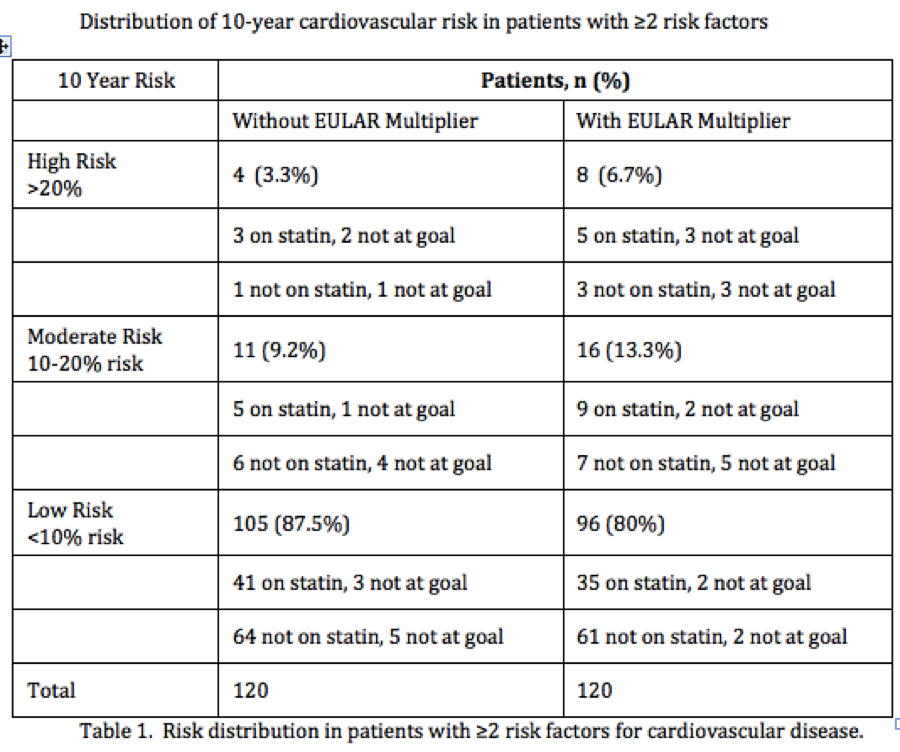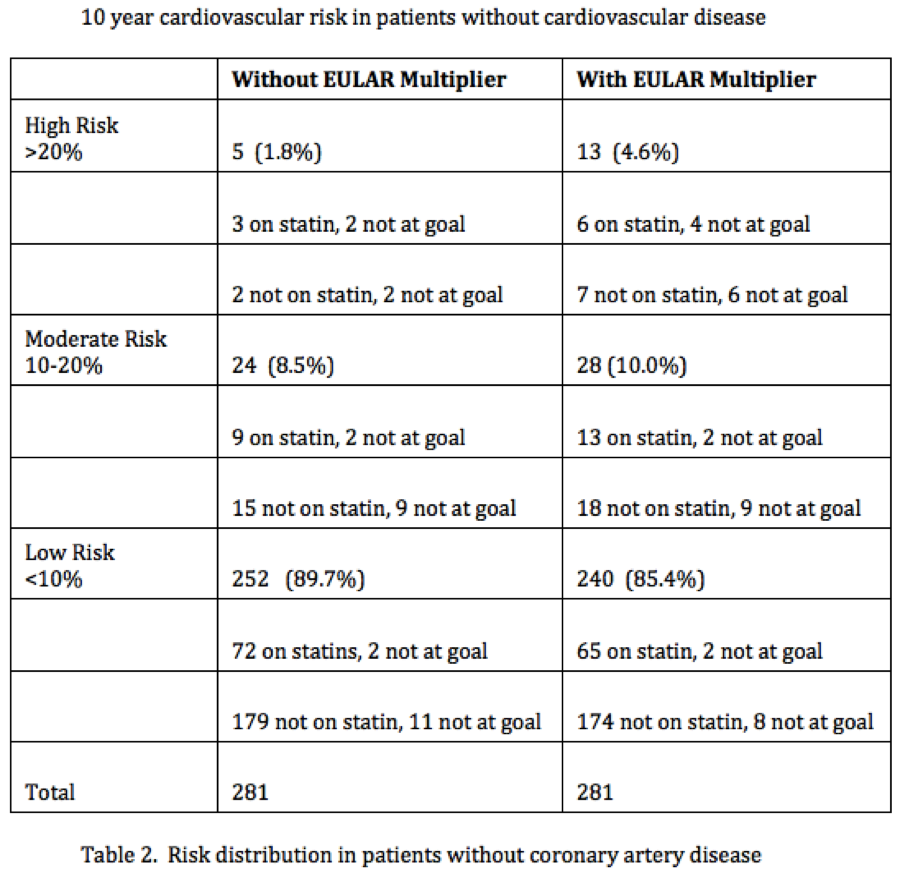Session Information
Session Type: ACR Poster Session B
Session Time: 9:00AM-11:00AM
Background/Purpose:
Patients with rheumatoid arthritis (RA) carry a higher risk
for cardiovascular disease (CVD) independent of traditional risk factors. In
this study, we set out to determine the proportion of patients in our practice
who receive cholesterol screening, and we evaluated the effects of the EULAR
(European League Against Rheumatism) risk multiplication factor1 on the
number of RA patients identified as having a high or moderate 10 year risk for
CVD.
Methods:
A chart review was performed for adult RA patients evaluated
as return visits in the division of Rheumatology at our institution from June
1, 2012 to June 1, 2013. Clinical information was reviewed for CVD or CVD risk
equivalents (cerebrovascular accident, peripheral artery disease, diabetes
mellitus). The Framingham 10 year risk for CVD was calculated for patients who
did not have CVD or CVD risk equivalents. A risk multiplier of 1.5 recommended
by the EULAR for patients with 2 risk factors (disease duration > 10 years, seropositivity,
or severe extra-articular manifestations) was applied. We evaluated the
proportion of patients who received cholesterol screening and the proportion of
patients taking statin therapy as indicated by the 10 year risk, for CVD, with
and without the EULAR risk multiplication factor.
Results:
Of 520 patients who met inclusion criteria, 364 (70% , 95%CI
66.0-73.9%) received cholesterol screening. The proportion of patients with ≥2
CVD risk factors who had high or moderate risk (>20% or 10-20% 10 year risk
respectively) increased from 12.5% to 20% when the EULAR risk multiplication
factor was applied (Table 1). Amongst patients with any number of risk factors,
the proportion of patients with high or moderate risk increased from 10.3% to
14.6% (Table 2). Of 16 patients with ≥2 risk factors who were not at target
for low density lipoprotein (LDL) levels, 11 were not receiving statin
therapy. In the larger patient cohort, 31 patients were not at LDL goal, and
23 of these were not on statin therapy.
Conclusion:
Given the increased risk for CVD in RA patients, methods to
increase the rate of cholesterol screening should be explored. Additionally,
the EULAR multiplication factor serves as a valuable tool when determining the 10
year risk for CVD in RA patients who otherwise may not be identified as
requiring lipid lowering therapy.
References:
1. Peters
MJL et al. EULAR evidence-based recommendations for cardiovascular risk
management in patients with rheumatoid arthritis and other forms of inflammatory
arthritis. Ann Rheum Dis 2010;69:325-31.
To cite this abstract in AMA style:
Chavda R, Ostrowski RA. Accounting for Rheumatoid Arthritis in the Determination of 10 Year Cardiovascular Risk [abstract]. Arthritis Rheumatol. 2015; 67 (suppl 10). https://acrabstracts.org/abstract/accounting-for-rheumatoid-arthritis-in-the-determination-of-10-year-cardiovascular-risk/. Accessed .« Back to 2015 ACR/ARHP Annual Meeting
ACR Meeting Abstracts - https://acrabstracts.org/abstract/accounting-for-rheumatoid-arthritis-in-the-determination-of-10-year-cardiovascular-risk/


